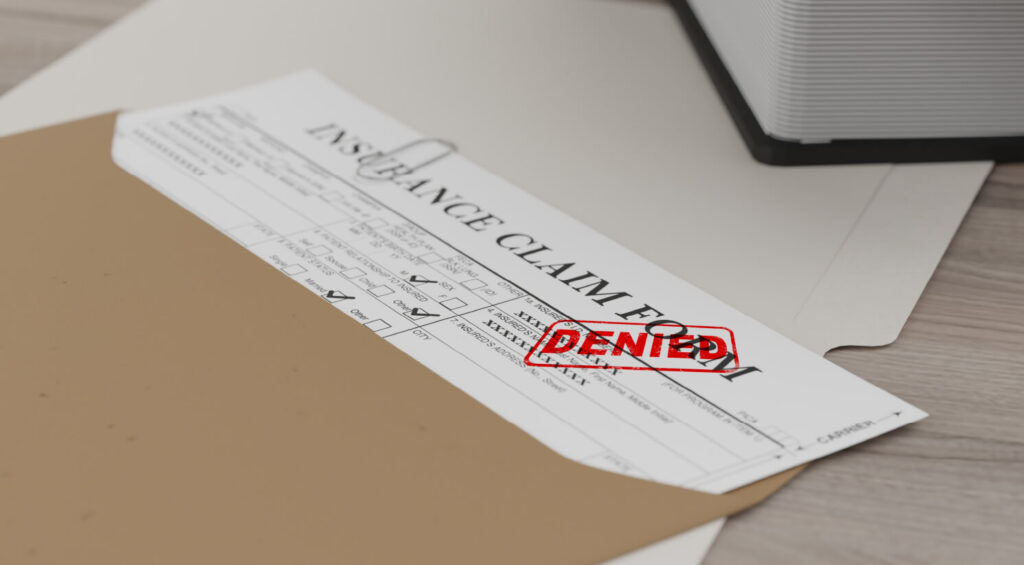Dealing with insurance claims can feel like you’re stuck in a never-ending maze—frustrating, confusing, and just plain overwhelming. Whether it’s understanding the fine print or figuring out why your claim is taking forever, it’s easy to feel lost.
That’s where we step in. In this guide, we’ll dive into the most common insurance claim questions, breaking them down in a way that actually makes sense. And if things get tricky, having an insurance claim lawyer on your side can turn the tide in your favour.
Ready to get the answers you need? Let’s get started!
What Are The Most Common Reasons For Insurance Claim Denials?
Filing an insurance claim can be stressful, especially when it’s denied. The most common reasons for claim denials include:
- policy exclusions
- incomplete or incorrect documentation
- delays in submitting the claim
- misrepresentation or fraud
To avoid these pitfalls, always review your policy carefully to understand its coverage limits and exclusions. Ensure all required documents are accurate and submitted on time. If your claim is denied, consulting an experienced insurance claim lawyer can help navigate the process and protect your rights. Don’t let a denied claim catch you off guard—stay informed and proactive to ensure a smoother experience.

How Long Will It Take For My Claim To Be Processed?
The time it takes to process an insurance claim depends on several factors. Auto and home claims typically take 2-4 weeks, while health insurance claims may be processed within 10-30 days. More complex cases, like life insurance, can take up to 60 days or longer.
The speed of an insurance claim is influenced by the type of claim, completeness of your documentation, the complexity of the situation, and your insurer’s workload. To expedite the process, ensure all required documents are submitted promptly and accurately. Ensure you also follow up with your insurer to avoid any unnecessary delays.
What Documents Do I Need To Submit With My Insurance Claim?
When filing an insurance claim, providing the correct documentation is key to a successful outcome. The essential documents you’ll need include proof of loss, such as police reports for theft or medical records for injury claims, receipts or estimates for any repairs or damages, and visual evidence like photos or videos of the incident. Additionally, you’ll need to submit your policy details to confirm coverage.
Accurate and complete documentation ensures your claim is processed quickly and fairly. If you have any missing or incorrect information when you submit your claim, it can result in delays or even denial of your claim. For added assurance, consult with an insurance claim lawyer who can provide a detailed checklist and guide you through the process effectively.

Can I Dispute My Insurance Claim Settlement? If So, How?
If you’re staring at a settlement that feels unfair, don’t worry—you have options. Start by reviewing your policy to pinpoint any inconsistencies, then gather fresh evidence like photos, repair estimates, or expert assessments to back up your case. Take this information to the negotiating table with your insurer.
If they’re still not playing fair, it’s time to escalate. You can file a legal claim and fight for what you deserve. And here’s a pro tip: teaming up with an experienced insurance claim lawyer can make all the difference. They’ll help cut through the red tape, negotiate fiercely, and take the legal reins if needed—boosting your chances of winning.
Will Filing An Insurance Claim Increase My Premiums?
Filing an insurance claim can sometimes lead to an increase in your premiums, but several factors come into play. The type of claim and how often you file are key—small, frequent claims may raise your rates more than a single large one. Insurers also assess risk, so if your claim suggests higher future risk, your premiums may go up. Your history as a policyholder, along with your insurance company’s specific guidelines, also matter.
To minimise the impact, consider paying out-of-pocket for minor claims and review your policy to ensure you’re not over-insured. Safe practices and maintaining a clean claims record can help keep premiums in check.

How Are Insurance Claim Payouts Determined?
When you file an insurance claim, the payout is determined by several key factors. First, your policy’s coverage limits and deductibles play a significant role. For example, if you have a $500 deductible and your damage is valued at $5,000, you’ll receive $4,500.
Insurers also consider depreciation, meaning they may reduce the payout based on the item’s age or wear. If your policy covers replacement cost, however, you’ll receive enough to replace the damaged item at today’s prices.
Additionally, insurers will assess the damage or loss through documentation, photos, or an on-site inspection. For instance, a car insurance payout might differ if the vehicle is deemed a total loss versus repairable damage.
Can I Handle My Insurance Claim On My Own, Or Should I Hire A Lawyer?
When it comes to insurance claims, the approach depends on the complexity of your case. For simple, straightforward claims, handling it yourself can be cost-effective and relatively easy. However, if your claim is large or involves disputes, an experienced insurance lawyer can be invaluable. They bring expertise to navigate legal jargon, negotiate settlements, and ensure you’re treated fairly.
Without professional help, you risk missing crucial details that could reduce your compensation. Weigh your options carefully—while DIY may work for small claims, complex cases often benefit from a lawyer’s guidance.

Wrapping It Up: Get The Answers You Need
Navigating insurance claims can be overwhelming, but with the right guidance, you don’t have to face it alone. At McDonnell Schroder, our experienced insurance claim lawyers are here to help you every step of the way, ensuring you receive the compensation you deserve. If you have more questions or need tailored advice for your case, don’t hesitate to reach out.Contact our team at McDonnell Schroder today, and let us help turn your claim into a success.





